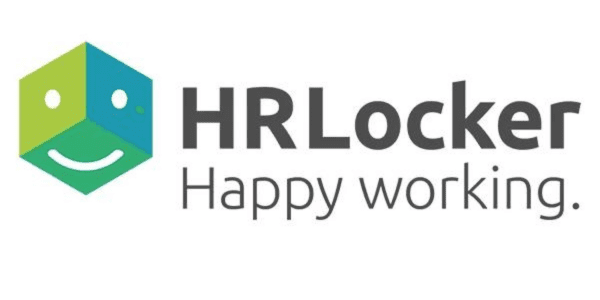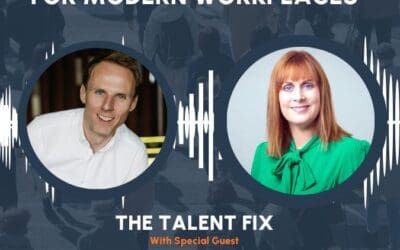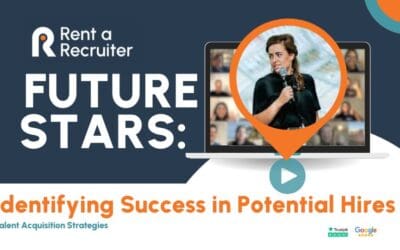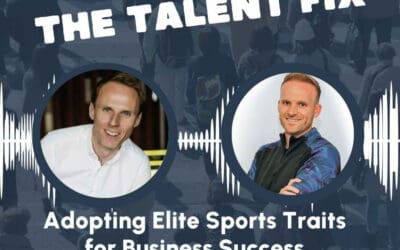Adam Coleman, CEO, HRLocker
Adam Coleman is founder and CEO of HRLocker. He develops strategic partnerships and is involved in developing and implementing ‘best in class’ HR solutions with the HRLocker team He has held senior HR Positions in both O2 UK and O2 Ireland and was head of HR for Esat Digifone.
Adam set up HRLocker in 2014. His mission is to develop HRLocker as the go-to-market platform for the HR sector in the SME market. He places a strong emphasis on work culture and places productivity and adult development at the centre of the HRLocker strategy.
In addition to Adam’s passion for work culture, he is also a keen surfer and an avid Southampton supporter. Adam loves talking to partners and customers and watching his colleagues push the boundaries of the impossible to the possible.
Barry Prost has 20 years experience in international recruitment and has co founded award winning brands in the sector including Propel Consult, Yala Consult, and now Rent a Recruiter, whose mission is to be a leading international, technology lead, embedded recruitment services provider with operations in Ireland, United States, Middle East and Australia.
Talent Fix Recruitment Podcast
The CEO & Founder of HR Locker, Adam Coleman
Welcome to the latest episode of The Talent Fix. And I’m delighted to welcome this episode’s guest, Adam Coleman, CEO & Founder of HR Locker.
Barry Prost
Adam develops strategic partnerships and is involved in developing and implementing best in class HR solutions with the HR Locker team.
Adam has held senior HR positions in both the O2 UK and O2 Ireland and was head of HR for Esat Digifone. So Adam, I won’t steal any more of your thunder.
Adam Coleman I also started out my life in Hayes, Montrose in the UK as a recruiter and I came back from the UK in 2002 and joined Professional Placement Group, which was probably one of the most stable recruitment business in Ireland to come out of back in the day with Anne Heritage working there and Robert Ferry and Michael O’Leary. And I went to work with HRM for four years. When Michael set up HRM, I joined him. And then I went into Esat. So I’ve done the whole full stack HR stuff, basically.
Barry Prost
Yes, I think you’re an ideal guest, Adam, and thanks again for your time for coming on because I think what’s going to be an interesting discussion for us is to hear how you think the industry has evolved from when you first started in the industry and obviously where it’s going. So I think if we launch straight into it, Adam, and just to get your thoughts.
How do you see the current recruitment industry and what key trends are you seeing in the sector today?
Adam Coleman: It really depends on the sectors and it depends at what level because I tend to look at recruitment, what’s happening, for instance, in hospitality recruitment or what’s happening in exec search recruitment or in SaaS recruitment or telecoms recruitment are all different all the time. And an example of that would be when I was in Digifone in 2001 when the .com bubble burst and there was major casualties on all the IT side and development side. I was in telecoms, which was completely unaffected. So I think you have to look at it from a sector perspective and you have to look at it from a level perspective at what stage, whether it’s the junior roles, really, really senior roles and what sector.
Barry Prost
If we look at if we look at it from the context of maybe challenges that you think are facing businesses today, you’re providing HR services to a wide range of enterprises.
Is there any common trends that you’re seeing when it comes to recruitment challenges?
Adam Coleman Are you talking from a recruiter’s perspective.
Barry Prost
Or no, excuse me, from a company perspective when it comes to hiring talent, what do you think the biggest challenges that companies are facing today?
Adam Coleman I think that it’s the same challenge that has been there since year dot. The interview is a ludicrous situation where if I asked you Barry, if you walked into a bar and talked excessively about yourself for an hour and 15 minutes how many people would listen to you? And the interview is similar to that as an individual you’re actually allowed to talk about yourself for an hour plus which you’re not used to doing. And also people will intently listen and ask you questions which you’re not prepared for in any way, shape or form. So part of the problem in the recruitment industry is the prep from both angles from an employer’s perspective if they set up that environment for people to talk in this interview format they’re not going to get proper data. And we’ve been educating people to do this for years and years and years and what it does is it provides basically false data for people to make decisions on whether people are going to be successful in roles or not if the interviewing and the selection isn’t done correctly.
Barry Prost
Sure. So does that mean that from an interviewer’s point of view that we should be leaning on the testing side, more psychometric testing, etc in order to make decisions?
Adam Coleman No, I wouldn’t touch psychometric testing for making recruitment decisions in any way, shape or form. Psychometric testing is for developmental purposes and as a practitioner of various different types of tests such as the 16 PF Thomas International, Myers Briggs and the one that I love most is Insights Discovery.
Barry Prost
Insights Discovery?
Adam Coleman Yes.
Barry Prost
Can I just ask, why do you think that one’s the?
Adam Coleman Because when I set up a hitch up consultancy back in 2003, I knew I needed a tool. And while I was trained on ETC Thomas International Myers Briggs we did a lot of work within the marketplace and we decided to run with Insights Discovery as our developmental psychometric, I suppose. Product of choice to the point that I ended up being a distributor of it. I ended up selling it for changing culture within businesses. And I also wrote their interview chapter, which they weren’t using. And I challenged Andy Lodeen at the time in Care where they held a worldwide conference which we had it down here in 2007, which was very interesting. The one in Amsterdam the following year was even more interesting but we won’t go into that. And I stood up at the Amsterdam one and I said to Andy, I said Andy, I said your interview chapter is illegal. Doesn’t work, it’s rubbish. And he said yeah, you’re right. He said now fix it. Because they had no interest in selling it because they didn’t believe that Insights should be used for selection. So I basically revamped it for them, made it legal and I don’t think they’ve used it todate but we used it.
Adam Coleman He was nervous about getting people to use it because he felt that if people weren’t trained to interview correctly that they would take false readings from it. So psychometrics to me is a developmental tool, should never be used as an interview tool the actual, and you’re going to laugh at this, and this is fact, but I don’t agree with this, to be honest with you. The best predictor of a person doing a job in the future is handwriting analysis.
Barry Prost
I haven’t heard that before.
Adam Coleman Now, they’ve done studies on this and I know it sounds bizarre, Barry, and I don’t necessarily agree with the data, but they proved that handwriting analysis was a better way of predicting a person’s performance rather than interviewing or psychometrics or anything like that. Now, we don’t use handwriting analysis, just put it out there. But that’s how crazy and how in depth some of the studies have gone, right? Yeah.
Barry Prost
It’s that example, isn’t it, that correlation doesn’t necessarily mean causation in a way. So you could look at that’s where data can be misinterpreted, correct?
Adam Coleman Yeah, absolutely.
Barry Prost
And you have to be so careful about that, but I suppose you’ve gone down that path. Now, I would be interested to know what attributes do you think? Because this is what every interviewer wants to know, every recruiter wants to know, what attributes should I be testing for in order to guarantee the best outcome for success for this individual?
Adam Coleman Pick a job.
Barry Prost
Well, HR manager.
Adam Coleman HR manager, okay. My favourite job, if I was looking for HR manager, what I would do first of all is I’d write out a spec, or with today’s tools, I’d probably go to Chat GPT and get them to churn out a spec for a HR manager, for a SaaS company. And I’d have a look at it and I’d say, okay, that sounds interesting. How do we differ from that? Then I’d add into that specification, I’d add in the culture within HR Locker of what we expect from people, and then we run our company based against currently eight principles, which have been all developed inside the business. And a lot of them are going to be very obvious to people when I give you the titles, which will be Teamwork, Flexibility, Initiative and Execution, Trust and Truth, Ownership, Resilience and Empathy and Customer Focus. And the final one is Motivational Fit. Okay? And what I did in Digifone in a smaller degree, and what I’ve done in a larger degree in HRLocker is these are all things of how we want people to work. So what we do as a management team, we come up with a title, we come up with a definition, which means nothing, by the way.
Then we present it to the employees within the business and we ask them what good looks like under this. So what we’re doing is we’re building a constitution, a behavioural or principle based constitution for our business. And the way we interview, if it’s a HR Manager’s role, because it’d be very, very important, the first thing we do is we put the spec out there, we put it onto our ATS Hire and it’ll go out to all of these places. LinkedIn, Indeed, Twitter, Facebook, our own website, Monster Glassdoor, to name but a few. And what’s happening in the industry at the moment is that people aren’t reading the specs. And I’ll give you a really good example. We’re about to appoint somebody to our Modern Workplace division, which is a combination of a recruiter and a HR person, right? Where we want them to look at hiring, not hiring, we want them to look at finding good HR consultants who want to partner with us. And we want to basically build their help them build retain business using HR Locker as sort of a keystone to that. Right? We got 175 responses. Of the 175 responses, I think we called it, we called the role HR partner recruitment executive, modern Workplace.
We got 184 responses of that 184 responses, I would say 130 of them thought we were looking for an in house recruiter. So what that says to me is that they didn’t even read the spec. Okay? So one part of it is, from a candidate’s perspective, they’re going out there and they’re sending CVS everywhere, right. And they’re not actually looking at their CV. They’re not tailoring their CV for the role they’re not doing. Most of them, they have an option of putting in a cover letter. 50% of them didn’t even bother putting a cover letter in. And then we have about six or seven questions that we ask, right? Nothing outrageous. It’s like, what do you know about us? Why are you looking to move the normal questions? What’s your current salary, what’s your expectations? And again, if people don’t tell us what their current salary is and what their expectations are, if they’re way outlandish, we just don’t call them for interview. So be able to develop the open and honest and trust from day one, because that’s what we would expect within the company.
Barry Prost
Sure.
Adam Coleman But there’s just pallavour built around negotiation, around salaries and all this sort of stuff, which is brought together by how companies operate, how recruiters operate, and how candidates are told they should operate. Yeah. And that is the biggest problem with recruitment at the moment.
Barry Prost
Okay, that’s a really interesting point. And I think we started out chatting about the interview process. You compared it, which I haven’t heard before, but it is interesting when you think about the interview process being compared to walking into a bar and being asked to talk for 20 minutes and who’d listen, which is obviously you only.
Adam Coleman Interview people for 20 minutes. Barry we do at least an hour 15.
Barry Prost
But it got me thinking about the interview process and how it’s something that really hasn’t changed in maybe 50 plus years. And I take, from what you’re saying that you think it is broken in some way and it’s not effective in its current format.
How do you think recruitment is going to evolve in the future?
Adam Coleman Well, I can only give you a sample of one barrier of what works for us and what has been really working for us, and what has worked for me, even when I was in HR consulting and when I was a recruiter, is the open and transparency of it. When you get the candidate in, you sit them down, you relax, you get them to talk as they would talk normally, and you ask questions and you appear interested. And they don’t feel like they’re being grilled, they feel like they’re telling a story.
They’re telling the story of their career. They’re telling the story of what they like about companies. As a recruiter, as a professional recruiter, you want to know why they want to move, where they want to move, what’s behind their move.
Is it money? Which is not a bad thing if it’s money, right? Some people think it’s always a bad thing. It’s not, is it flexibility? Is it package? There’s too much focus on salary as well, and not on deferred gratification. So what I mean by that is, with options and stuff like that, I think the recruiter should be educating the candidates to what share options mean, what strike price means on share options, what the whole picture is. But I think it’s gone too fast and furious. And I’ll be honest with you, a lot of it is unprofessional. I would say there’s about 10% to 15% of the recruiters out there that are worth their weight in gold. And then there’s an awful lot of stuff that’s just firing CVS all over the place and this includes the candidates firing them at the companies, and it includes the recruiters firing them at the companies.
The results lead to loads of wasted time, wasted energy and people not working out.
Barry Prost
Yeah, absolutely. Well, look, we’d be advocates of companies working with one recruitment partner, for sure. But I think, from what you’re saying is you want to put the candidate in an environment to allow him or her perform at his or her best?
Adam Coleman Absolutely, yeah. When you say perform, I don’t even like the term. Perform means they’re on a stage & you’ve automatically put it back to where it was before. You don’t want a person to perform at an interview, you want them to tell you their story. You want to find out what they did, why they did it and what the result were. And you want specific examples and specific data. Not that I’ve always done this or I’ve always done that. And what you would have known, probably in the last 20 years, which has been around for a long time, is behavioural interviewing. It’s where you’re asking people against a set criteria behaviours, and the questions that you’re asking them are very relevant.
The best examples you can get from the candidate are the ones that are most recent, the ones that are most like the target job and the one that holds the most impact.
Barry Prost
Okay?
Adam Coleman So all you’re looking for is what they did. So when you can assess that, you can assess that against the principle or behaviour in that business and then you can score that data. And the most important part of that at the end is a thing called motivational fish. Are they motivated to work for you, to work for your company, to work the style of company you are, the type of culture you are for the amount of money that you’re offering and for the total package that you’re offering. And the location, or with remote working location isn’t that important anymore. But I think the employer needs to know what location it is because for tax purposes, et cetera, et cetera. So it’s more them telling their story of how they’ve got to where they are and where they want to go and what they’ve done to get there.
Barry Prost
I mean, that’s really good advice and I’m conscious of time, Adam, so I’d love to just finish off with one question, which is just around looking a little bit to the future.
Looking at what you in HR Locker or what you think your clients will be doing differently when it comes to recruitment.
Adam Coleman I think a lot of clients have a lot of work to do in regards to bringing their recruitment up to normal practises before you start talking about AI and all that sort of stuff, which I know is where you want me to go to. And I think with the likes of ChatGPT and AI, etc, I think it’s very, very important if you talk about large volumes of recruitment, but if you’re talking about specific executive search and stuff like that, I don’t think it’s going to take away from the really good recruiters and the really good exec search people because artificial intelligence can’t tell the future. It’s exactly the same as behavioural interviewing. It’s looking at past performance, predicts future behaviour. It’s not looking at what future behaviour is, not as of yet. And if somebody has a piece of software that can do that, please send it to me at Adam Coleman at adam@hrlocker.com. And I’d love to have a conversation.
Barry Prost
Adam, that’s a great note to finish on. Thanks again for your time.
Adam Coleman, CEO and Co-Founder of HR Locker.







